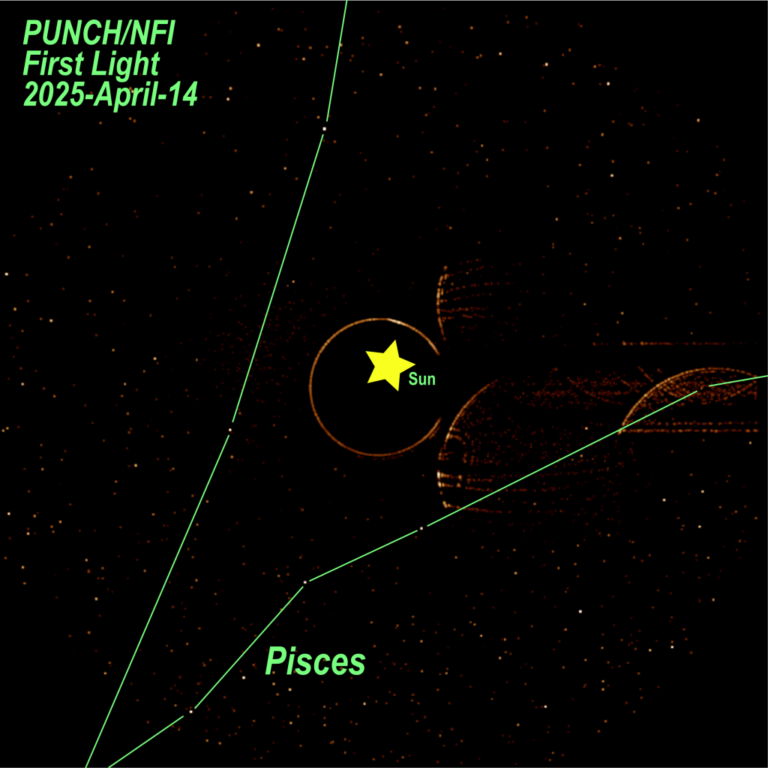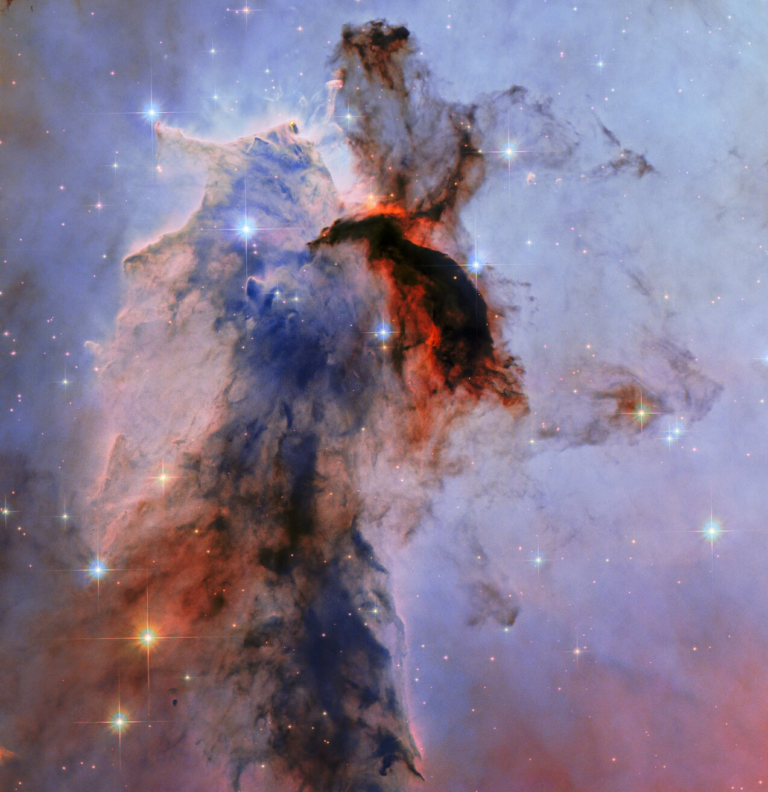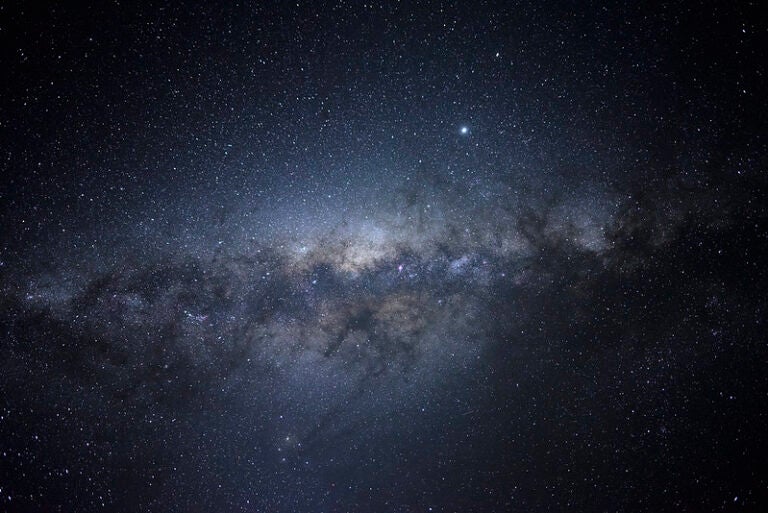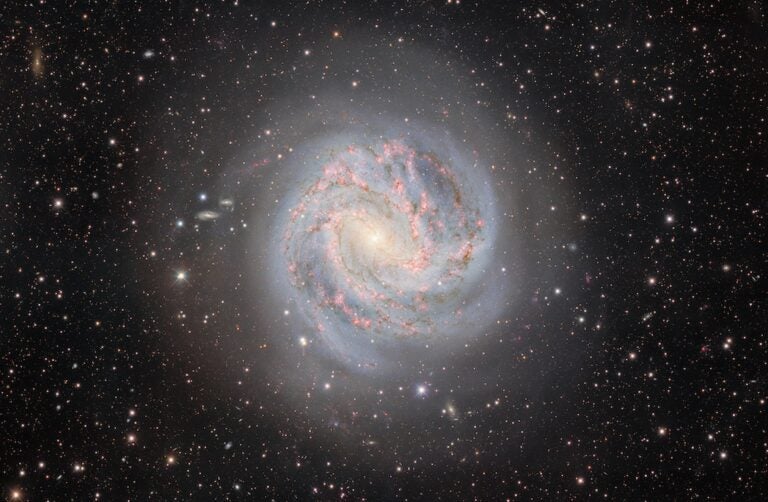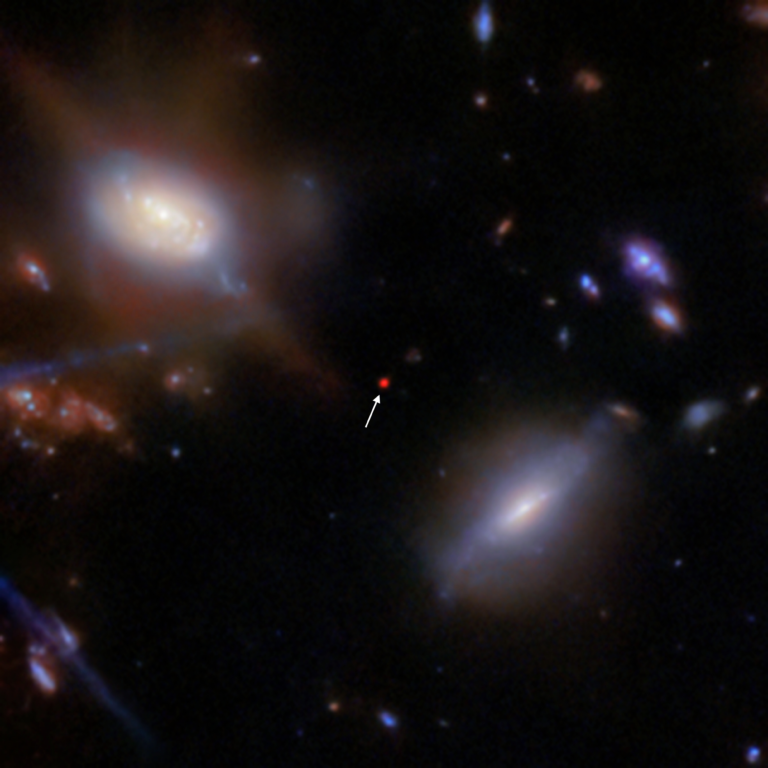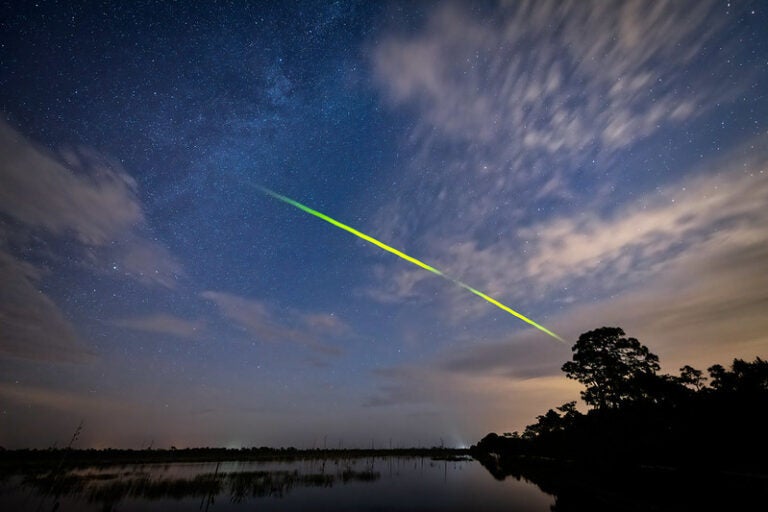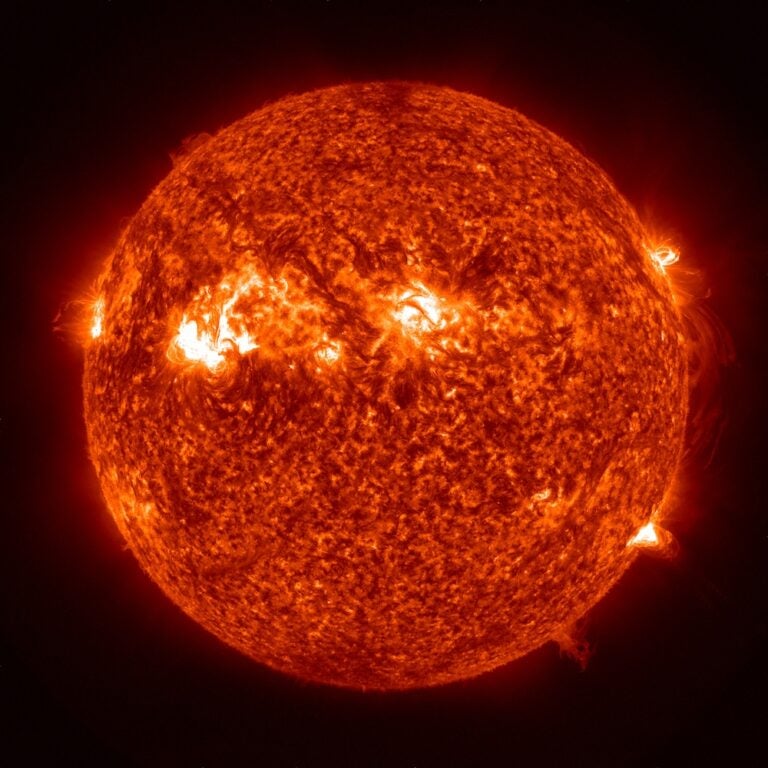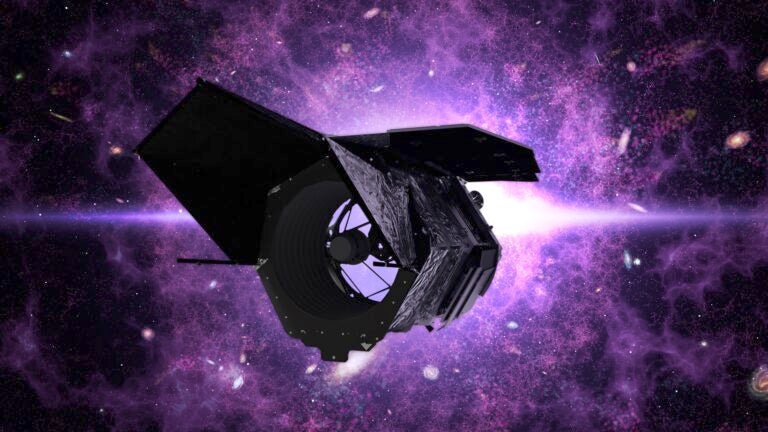The most massive stars may explode without leaving behind a black hole or neutron star. Some anomalously bright supernovae discovered recently, such as Supernova 2006gy, may be such “pair instability” supernovae. Once a 100-plus-solar-mass star begins fusing carbon in its core, the gamma rays produced may collide and create pairs of electrons and positrons. This process removes energy from the core. The star will collapse, and the core will undergo a runaway thermonuclear reaction, blowing the s…
What will happen when the 100-plus-solar-mass star Eta Carinae dies?
Jacob Bertin, Williamsport, Pennsylvania

